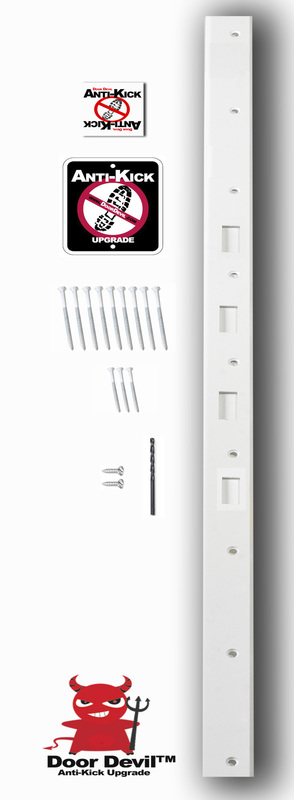|
As product quality goes down and prices go up, many good locksmiths are seeking alternative products that offer greater value and durability for their customers. Major American brand names from what has become known as the "mega manufacturers" have continued to promote inferior products while at the same time increasing their prices to a point of gross extremes. These products are being made with cheaper parts and barely can be identified as a security device in the eyes of the professional locksmith. With escalating costs that leave the locksmiths scratching their heads and consumers being taken to the cleaners (ripped off), the professional locksmiths are abandoning these brands and recommending value engineered alternatives. We see several of these products in the mega home centers and the consumers are often bamboozled into believing these are adequate devices to protect themselves, their belongings, and their loved ones. In many instances these products under examination are clearly "cheapened" or demonstrate the intentional obsolescence design alterations which will limit their longevity and force an upward sale a short time later. In comparison we see smaller "indie" (independent) start-up companies and imported brands or off-shore private labeled brands with higher quality and lower prices. The durability of these products are exceeding those of the mega manufactures who present themselves as dominate industry players. It is well known that they too are importing their products so why are their products failing so often? It is known as Designed Obsolescence, which means it is intentionally being done by the manufacturers to force the consumer to repurchase. It is also part of a growing pattern with security hardware products manufacturers who are trying to force upon the locksmiths and the consumers their new product designs like electronic locks, or web-enabled devices. Some of these products sound good, but lack the quality expected by the security professionals who work with them. Very often they are dumped into the market and they become part of a form of research & development which leaves the locksmith scrambling to resolve issues, losing money in repeat call backs. All the while the consumer thinks it is the locksmiths fault, when in fact it is the designed obsolescence of the product by the manufacture. I encountered an interesting argument with one mega manufacturer's Product Trainer who was found advocating for locksmith licensing while conducting an educational seminar on his company's product. When I pointed that trying to use a product seminar to pimp failed and harmful licensing was inappropriate and ignorant, his response was this - "How else are we to force the locksmith to learn about new products!" If a product addresses a solution, meets the desire of the consumers, or is durable and cost effective, then it will become sought after. Those who fail to educate themselves won't last in the free market. That is how things work. Trying to re-engineer or social engineer how winners and losers are made by trying to "force" a result by design (licensing) is not much different than cheating the consumers by designed obsolescence! HARD-ware is the business most professional locksmiths are in, and although consumers often gravitate to the cheapest or lowest price, it does not mean they want something that is inferior and is designed to fail. If this is how the mega manufacturers wish to continue, then alternative brand products will continue to be the best choice for the locksmith and the better value for the consumers. The following video is long but very informative. Please leave your comments below about Designed Obsolescence and your experiences with it.
If you are a locksmith, what alternative brands and solutions would you recommend to the consumers? Tell us why? What mega manufacturer brands are you disappointed in? Have you lost money dealing with these brands? Did you have call backs? Did the consumer blame you? Members of he Society of Professional Locksmiths participate in continuing education and professional development programs voluntarily to provide the consumer the best possible service. They investigate and recommend many alternative products of value. If you learned something new from this blog or have more to contribute, please share your comments, give it a Facebook LIKE or Tweet!
0 Comments
Your comment will be posted after it is approved.
Leave a Reply. |
Categories
All
|
Services |
Company |
|



 RSS Feed
RSS Feed
